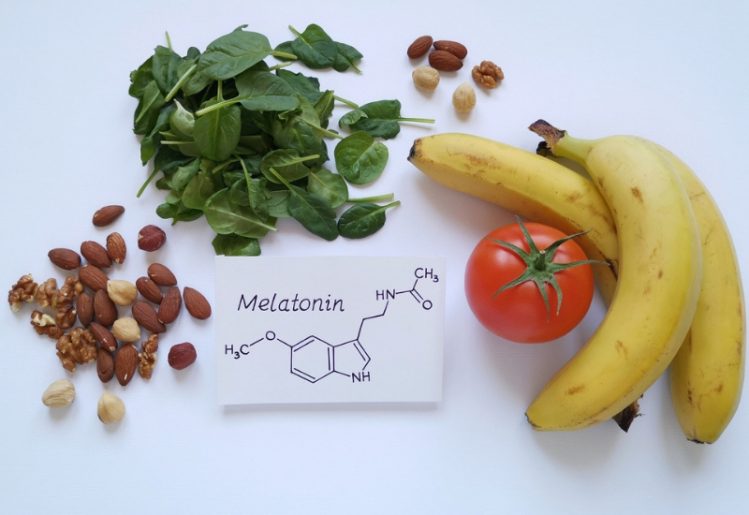If you have ever had trouble sleeping, you may know that melatonin is the primary ingredient in many sleep supplements. This is because it’s a natural hormone that’s produced in the brain to govern the sleep-wake cycle and other internal body clocks. But melatonin does more than just help you get a refreshing night’s sleep: As we face a global pandemic, new research finds that melatonin boosts immunity and could provide greater protection against infectious diseases.
What is Melatonin?
 Our brain and body function on a 24-hour biological clock, known as the circadian rhythm, which regulates our sleeping and waking hours. The circadian rhythm relies on the light of the day and the darkness of night as cues to determine when we should be awake and when we should be asleep.
Our brain and body function on a 24-hour biological clock, known as the circadian rhythm, which regulates our sleeping and waking hours. The circadian rhythm relies on the light of the day and the darkness of night as cues to determine when we should be awake and when we should be asleep.
As the environment gets darker, the brain is triggered to release melatonin, which in turn helps us to feel sleepy. While this is melatonin’s primary role, much research has discovered that it also serves many other important functions in the body.
Melatonin has been utilized in natural sleep supplements for decades, and is also used to treat a number of different medical conditions. For instance, blind individuals frequently experience sleep disorders because the absence of light interferes with the functioning of their circadian rhythm. For the blind, administering melatonin in the evening can help the brain regulate sleeping and waking hours more effectively.
In the same way, melatonin supplements are sometimes prescribed to individuals suffering from shift work disorder. People who work evenings and nights must sleep during the daylight hours, when the brain isn’t producing melatonin. The decreased production of this hormone interferes with the sleep cycle, so a melatonin supplement can help night shift workers to sleep more easily during the day. Recently, new research has found even more ways that melatonin interacts with the body and mind, including how melatonin boosts immunity.
How Melatonin Boosts Immunity
When it comes to maintaining a healthy immune system, foods that contain antioxidants are often recommended because those antioxidants play a crucial role in protecting the body against the damage done by free radicals. Unfortunately, when there is a deficiency of antioxidants in the diet, other substances in the body must take up this protective role. For example, the hormone glutathione is normally responsible for moving energy to the cells, fueling the immune system and regulating how the immune system works. When there is an antioxidant deficiency, however, glutathione is forced to take up the role of fighting free radicals.
As glutathione is used for these extra tasks, the body’s supply gets used up rather quickly. This means there’s less fuel to bolster the immune system and that immunity can grow weaker as a result. Again, the body will compensate; it sends out melatonin to take up the role that glutathione usually performs. Using melatonin for its antioxidant properties gives the body a chance to produce more glutathione, so that these substances can all return to their normal tasks.
Melatonin becomes even more important to our health as we age, because it helps keep the immune system strong. Our immune system relies on T cells to help identify foreign invaders and to send antibodies to fight them, but the number of T cells in the body naturally diminishes over time. This means that as we age, there’s a decreased response of the immune system and the body can’t fight off disease as efficiently. Fortunately, melatonin helps to compensate for this reduction by stimulating the production of more T cells. In doing so, melatonin helps to strengthen the immune system and promotes better responses to disease.
According to research conducted at Jagiellonian University, melatonin can also act as an anti-inflammatory agent. Inflammation can be an acute immune system response to injury or illness, or it can be a chronic condition that requires an ongoing response. In either situation, the immune system’s involvement in inflammation can lead to a weakened immune response to other diseases that may affect the body. It has been shown that melatonin may help to reduce inflammation in instances where it’s not absolutely necessary, so the immune system can be freed up and reserved for more serious conditions such as infectious diseases.
Research has found that melatonin is present in several areas of the body in addition to the brain, including the retina, pineal gland, digestive tract and kidneys. Additionally, scientists have found melatonin receptors in cells throughout the body, providing further evidence that melatonin helps boost immunity. While research continues to focus on the mechanisms involved in how melatonin regulates immune system function, there’s clear evidence that this hormone does help the body fight against disease and infection.
Naturally Boost Your Body’s Melatonin Levels
There are a variety of natural ways to promote healthy melatonin levels in the body. Below are just a few.
Increase Your Exposure to the Sun
The production of melatonin relies on a healthy circadian rhythm, so exposing yourself to more sunlight during the day will help increase the production of melatonin at night. This helps your brain to observe a more pronounced difference between night and day, which will trigger a stronger sleep mode at bedtime.
Stick to a Schedule
 Regardless of the hours you work, you should develop a sleep schedule and stick to it all week long. This will help you train your circadian rhythm to adjust to your lifestyle, so melatonin production will coincide with your sleeping hours.
Regardless of the hours you work, you should develop a sleep schedule and stick to it all week long. This will help you train your circadian rhythm to adjust to your lifestyle, so melatonin production will coincide with your sleeping hours.
Darken Your Sleeping Quarters
If artificial light comes into your bedroom through a window, that can be enough to disrupt the production of melatonin. You can resolve this problem by either covering your windows with a thick, dark curtain, or by wearing a sleep mask to bed.
Limiting your exposure to artificial light at night and increasing exposure to sunlight during the day are the best ways to boost melatonin production. If you still experience sleeping difficulties, or you’re worried that you’re not producing enough melatonin naturally, talk to your doctor about taking a melatonin supplement. This will help you sleep better and it may boost the strength of your immune system to boot.


